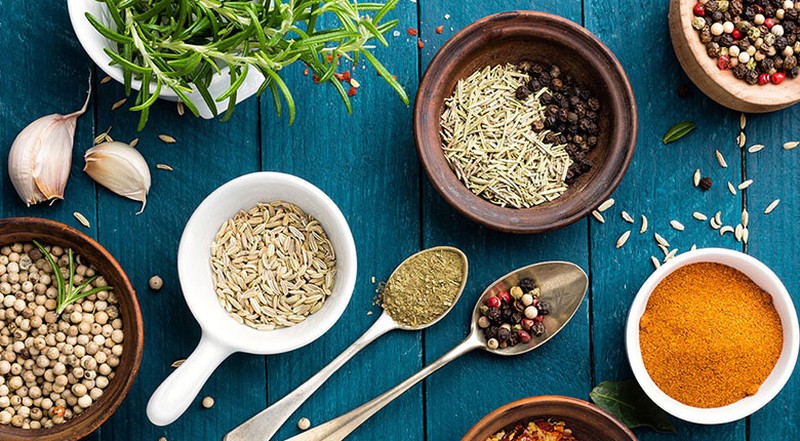Spice up your meals with delicious herbs and spices for a healthier alternative to salt and sugar. Elevate the taste of your dishes by incorporating ingredients such as basil, cilantro, cinnamon, and turmeric while promoting better health. This informative guide showcases how natural flavor enhancers can enhance both the taste and wellness benefits of your food choices.
Explore easy ingredient substitutions, allowing you to indulge in well-seasoned meals without sacrificing nutrition or enjoyment. From simple swaps to enticing recipes, discover how incorporating flavorful herbs and spices can make healthy eating sustainable and satisfying.
Balancing Flavors Naturally
To make your meals taste better, think about how flavors work together. Like salted caramel combines sweet and salty, you can use this idea in cooking to improve flavor without adding extra salt or sugar. Let’s talk bitterness; it’s not just for grapefruit or dark greens but can also help balance other tastes in your dish.
Sour notes from vinegar or citrus add a fresh twist, cutting through sweetness and richness. Ever heard of umami? The savory goodness found in soy sauce, mushrooms, and cheese rounds out a meal.
Chefs know tasting while cooking is key because no two ingredients are exactly alike – one brand of soy sauce might be stronger than another! Balancing these five major tastes isn’t just science; it feels more like art sometimes. Remember: always adjust as you go to achieve perfect harmony on the plate with the help of a weight loss specialist.
Herbs for Healthy Weight Loss
When it comes to losing weight, herbs might not act as a quick fix but can offer benefits. Studies show cinnamon could help you drop pounds when taken daily for three months. But remember, taking too much can lead to unwanted effects like stomach issues or allergic responses.
Fenugreek might reduce fat and improve cholesterol in animals; however, its safety at high doses is unclear, with possible side effects including nausea and drops in blood pressure. Ginger has been found to cut body weight without altering BMI, though it does come with risks of heartburn and throat irritation if consumed excessively. Ginseng may aid weight loss based on animal studies, yet requires more human research for confirmation; potential downsides include insomnia or digestive concerns.
Cayenne pepper safely boosts fullness and reduces fat accumulation when eaten as part of food, but watch out for the possibility of stomach upset from large amounts. According to recent findings, Caralluma Fimbriata didn’t significantly impact appetite control, although mild adverse reactions such as nausea were noted during trials. Lastly, turmeric curcumin was linked with metabolic improvements, and over 21 studies suggested promise, but cautious use is necessitated due to varied study results.
Spices as Sugar Alternatives
When you cut sugar from your food, it might not taste as good. But adding spices can help a lot. Studies show this works for some foods like apple crisp.
They made three kinds: full sugar, less sugar, and less sugar with added spices. People liked the one with spices just as much as the full-sugar kind. This means using spices could be a smart move to eat less sugar without missing out on flavor.
This is big news since many are trying to lower their added sugars—which make up over 14% of our calories. Spices didn’t always make all reduced-sugar foods taste better, though. But for things like desserts?
Spices seem promising in keeping them tasty even with less sweet stuff. So next time you bake something sweet but want less sugar that makes us jump around, think about throwing in some spicy bits instead! Visit stlouisweightlosssecret.com today!

